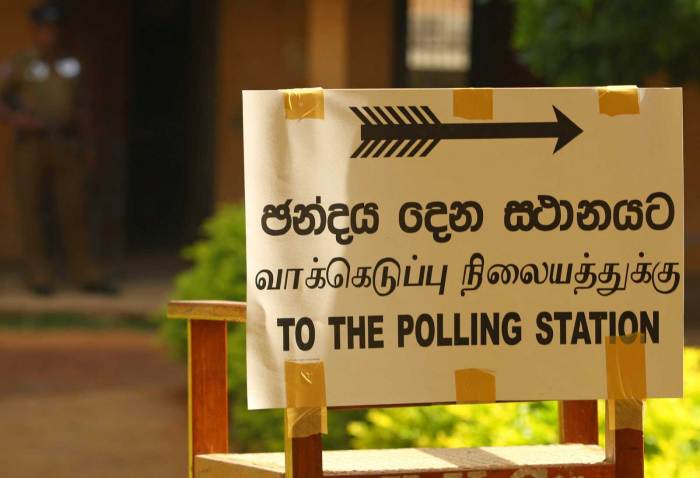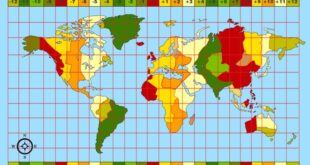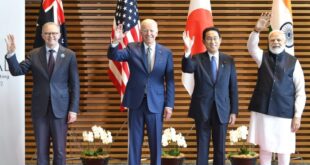Sri Lanka votes in first poll since economic collapse – Sri Lanka votes in its first poll since the devastating economic collapse, marking a pivotal moment in the nation’s recovery. The island nation, once a thriving tourist destination, has been grappling with crippling shortages of food, fuel, and medicine. The economic crisis has its roots in a combination of factors, including excessive borrowing, mismanagement of public funds, and the impact of the COVID-19 pandemic.
This election offers a chance for the people of Sri Lanka to choose a new path forward, one that promises to address the economic woes and rebuild the nation’s shattered economy.
The election campaign has been dominated by the economic crisis, with all major political parties vying for the opportunity to lead Sri Lanka out of its current predicament. Voters are looking for leaders who can restore stability, attract foreign investment, and create jobs.
The outcome of the election will have a significant impact on the future of Sri Lanka, determining the direction of its economic recovery and the pace of its social and political reforms.
The Economic Collapse and Its Impact
Sri Lanka’s economic collapse in 2022 was a devastating event that has had a profound impact on the lives of millions of Sri Lankans. The country’s economic woes were years in the making, and the crisis was triggered by a combination of factors, including mismanagement, corruption, and unsustainable borrowing.
Key Factors Contributing to the Economic Collapse
The economic collapse was a result of a confluence of factors, each contributing to the overall crisis.
- Excessive Borrowing:Sri Lanka borrowed heavily from foreign creditors, leading to a significant debt burden. The government’s reliance on foreign loans, particularly from China, became unsustainable, as interest payments and repayments became increasingly difficult to manage. This unsustainable debt burden was a major contributing factor to the crisis.
- Mismanagement and Corruption:The government’s economic policies were often criticized for being unsustainable and lacking transparency. The lack of accountability and transparency in government spending, coupled with allegations of corruption, eroded public trust and contributed to the crisis.
- Tax Cuts and Subsidies:The government’s decision to cut taxes and provide subsidies to appease voters further exacerbated the fiscal deficit. These measures, while politically popular, ultimately led to a decline in government revenue and increased borrowing.
- Dependence on Tourism:Sri Lanka’s economy was heavily reliant on tourism, which was severely impacted by the COVID-19 pandemic. The decline in tourism revenue further strained the country’s finances and contributed to the crisis.
- Foreign Exchange Crisis:The decline in tourism revenue and the government’s inability to repay its debts led to a shortage of foreign currency. This shortage made it difficult for Sri Lanka to import essential goods, leading to shortages and price increases.
Impact on Ordinary Sri Lankans
The economic collapse has had a devastating impact on ordinary Sri Lankans.
- Food Shortages and Price Increases:The shortage of foreign currency made it difficult for Sri Lanka to import essential goods, leading to shortages and price increases for food, fuel, and other necessities. This has put a significant strain on household budgets, forcing many families to skip meals or reduce their food intake.
You also can understand valuable knowledge by exploring Hilarie Burton Morgan on Why It’s Important for ‘One Tree Hill’ Sequel to Be Told Through a “Female Lens”.
- Loss of Jobs and Income:The economic crisis has led to widespread job losses and income reductions. Businesses have been forced to close down, and many workers have lost their jobs. This has resulted in a significant increase in poverty and unemployment.
- Healthcare and Education:The economic crisis has also impacted healthcare and education. The government has been forced to cut back on spending on these essential services, leading to shortages of medicine, equipment, and qualified personnel. This has made it difficult for people to access quality healthcare and education.
- Social Unrest and Protests:The economic crisis has fueled social unrest and protests. People have taken to the streets to demand government accountability and a solution to the crisis. These protests have often turned violent, leading to a state of emergency and curfews.
Political and Social Consequences
The economic crisis has had a profound impact on Sri Lanka’s political and social landscape.
- Political Instability:The economic crisis has led to political instability, with the government facing widespread criticism and calls for resignation. The crisis has also led to a rise in populism and nationalism, with some groups exploiting the situation for political gain.
- Social Discontent:The economic crisis has led to widespread social discontent, with people feeling disillusioned and angry with the government. This discontent has manifested in protests, strikes, and a general sense of hopelessness.
- Erosion of Trust:The economic crisis has eroded trust in the government and institutions. People have lost faith in the ability of the government to manage the economy and provide for their basic needs.
The Election and Its Significance

Sri Lanka’s first general election since the devastating economic collapse of 2022 holds immense significance. This election is not just about choosing a new government; it is about charting a course for the country’s economic recovery and rebuilding trust in its political system.
The election serves as a crucial opportunity for the Sri Lankan people to express their views on the government’s handling of the crisis and to choose leaders who can effectively address the challenges ahead.
The Key Issues of the Election Campaign
The election campaign was dominated by the pressing economic issues that have plagued Sri Lanka. The ongoing economic crisis, characterized by soaring inflation, fuel shortages, and a depreciating currency, became the central theme of the campaign. Voters were eager to hear from political parties about their plans to revive the economy, stabilize prices, and alleviate the hardships faced by ordinary citizens.
- Economic Recovery:The top priority for voters was finding a solution to the economic crisis. Parties were expected to present concrete plans for reviving the economy, including measures to attract foreign investment, promote exports, and create jobs.
- Debt Management:Sri Lanka’s heavy debt burden was another major concern. Voters demanded transparency and accountability in the government’s debt management strategies, as well as plans to reduce the debt burden and ensure sustainable economic growth.
- Cost of Living:The rising cost of living was a significant hardship for many Sri Lankans. Parties were urged to address the issue by proposing measures to stabilize prices, control inflation, and ensure access to essential goods and services.
Potential Outcomes and Challenges
The Sri Lankan election is a pivotal moment in the country’s history, as it presents an opportunity for the people to choose a new path forward after the devastating economic crisis. The outcome of the election will have significant implications for the country’s future, shaping its economic recovery, political stability, and social cohesion.
Potential Outcomes of the Election
The potential outcomes of the election are multifaceted and depend on various factors, including the political landscape, voter turnout, and the candidates’ platforms. Some possible scenarios include:
- A decisive victory for one party or coalition, leading to a stable government with a clear mandate to implement its policies.
- A fragmented parliament with no single party or coalition securing a majority, resulting in a coalition government or prolonged political instability.
- A significant shift in voter preferences, with new parties or candidates emerging as major players in the political landscape.
Challenges Facing the New Government
The new government will face significant challenges in addressing the economic crisis and restoring Sri Lanka’s stability. These challenges include:
- Rebuilding the economy:Sri Lanka faces a severe economic crisis characterized by high inflation, dwindling foreign reserves, and a ballooning debt burden. The new government will need to implement comprehensive economic reforms, attract foreign investment, and promote sustainable growth to address these challenges.
- Managing public finances:The government’s fiscal deficit has widened significantly, and the new government will need to implement measures to reduce spending, increase revenue, and manage the country’s debt burden.
- Addressing social unrest:The economic crisis has led to widespread social unrest, with people struggling to afford basic necessities. The new government will need to address the grievances of the people and implement policies that promote social justice and equity.
- Restoring political stability:The political landscape is fragmented, and the new government will need to build consensus and forge alliances to ensure political stability and effective governance.
- Addressing corruption and accountability:Corruption has been a major issue in Sri Lanka, and the new government will need to address this problem and promote transparency and accountability in governance.
Key Priorities for the New Government
The new government will need to prioritize the following areas to address the economic crisis and rebuild Sri Lanka:
- Economic recovery and growth:Implementing structural reforms to improve the business environment, attract foreign investment, and promote export-oriented industries. This includes addressing the challenges of public debt, improving the efficiency of state-owned enterprises, and fostering a more competitive market economy.
- Social safety nets:Providing targeted support to vulnerable populations affected by the economic crisis through programs like food security initiatives, cash transfers, and employment generation schemes.
- Debt restructuring and management:Engaging with international creditors to restructure Sri Lanka’s debt burden and secure sustainable financing terms.
- Good governance and accountability:Promoting transparency and accountability in governance, strengthening institutions, and combating corruption.
- Reconciliation and social cohesion:Addressing the root causes of social unrest and promoting national unity and reconciliation.
International Response and Assistance
Sri Lanka’s economic crisis has triggered a significant international response, with various countries and organizations stepping in to provide assistance and support. This response reflects the global community’s concern for Sri Lanka’s well-being and the potential for wider regional instability if the crisis is not addressed effectively.
International Organizations’ Role in Providing Assistance
International organizations have played a crucial role in providing financial and technical assistance to Sri Lanka. The International Monetary Fund (IMF) has approved a $3 billion bailout package, aimed at stabilizing the country’s economy and restoring macroeconomic stability. The World Bank has also pledged financial support for Sri Lanka’s recovery efforts.
These organizations are working closely with the Sri Lankan government to implement economic reforms and address the underlying causes of the crisis.
Challenges and Opportunities Associated with International Assistance
International assistance to Sri Lanka comes with its own set of challenges and opportunities. One challenge is ensuring that assistance is used effectively and transparently. There are concerns about corruption and mismanagement within the Sri Lankan government, which could hinder the effectiveness of aid.
Additionally, the Sri Lankan government needs to implement structural reforms to address the underlying economic issues that led to the crisis. These reforms could be politically challenging and require strong political will.However, international assistance also presents opportunities for Sri Lanka to rebuild its economy and create a more sustainable future.
The IMF bailout package, for example, is contingent on the implementation of structural reforms, which could lead to long-term economic growth and stability. International assistance can also help Sri Lanka attract foreign investment and improve its access to global markets.
The Future of Sri Lanka
Sri Lanka’s economic crisis has left the country facing a multitude of challenges, but it also presents an opportunity for a new beginning. The upcoming election offers a chance for the nation to choose a path towards recovery and sustainable growth.
While the road ahead will be arduous, there are concrete steps Sri Lanka can take to rebuild its economy and strengthen its institutions.
Economic Recovery and Growth
Sri Lanka’s economic recovery will depend on a combination of factors, including debt restructuring, fiscal consolidation, and structural reforms.
- Debt Restructuring:The government must negotiate a sustainable debt restructuring plan with its creditors, including both bilateral and multilateral lenders. This will involve reducing the debt burden and extending repayment terms to provide fiscal space for recovery.
- Fiscal Consolidation:Sri Lanka needs to implement measures to reduce its budget deficit and stabilize public finances. This will involve controlling government spending, increasing revenue collection, and improving tax administration.
- Structural Reforms:Sri Lanka must address underlying structural weaknesses in its economy, such as low productivity, inadequate infrastructure, and a lack of competitiveness. This will require reforms in areas such as education, healthcare, and the business environment.
Strengthening Institutions
Sri Lanka needs to strengthen its institutions to ensure good governance, transparency, and accountability. This will require addressing corruption, promoting rule of law, and improving public service delivery.
- Fighting Corruption:Sri Lanka must implement measures to prevent and punish corruption, including strengthening anti-corruption laws and institutions.
- Promoting Rule of Law:The government needs to ensure that the rule of law prevails, by strengthening the judiciary, police, and other law enforcement agencies.
- Improving Public Service Delivery:Sri Lanka must improve the efficiency and effectiveness of its public services, such as healthcare, education, and infrastructure development. This will involve streamlining processes, reducing bureaucracy, and enhancing accountability.
Investing in Human Capital
Sri Lanka needs to invest in its human capital to foster economic growth and development. This will involve improving education and healthcare systems, promoting skills development, and creating opportunities for employment.
- Education:Sri Lanka must improve the quality of its education system, providing access to quality education for all citizens. This will involve investing in teachers, curriculum development, and infrastructure.
- Healthcare:The government needs to strengthen the healthcare system, ensuring access to affordable and quality healthcare for all citizens. This will involve investing in hospitals, clinics, and medical professionals.
- Skills Development:Sri Lanka must invest in skills development programs to ensure its workforce is equipped with the skills needed for the 21st century. This will involve training programs in areas such as technology, manufacturing, and services.
Diversifying the Economy
Sri Lanka needs to diversify its economy to reduce its reliance on tourism and agriculture. This will involve promoting sectors such as manufacturing, technology, and services.
- Manufacturing:Sri Lanka can leverage its existing manufacturing base to promote export-oriented industries, particularly in sectors such as textiles, apparel, and electronics.
- Technology:The government can promote the growth of the technology sector by investing in research and development, fostering innovation, and attracting foreign investment.
- Services:Sri Lanka can capitalize on its strong service sector, including tourism, healthcare, and education, by promoting these sectors as key drivers of economic growth.
Promoting Foreign Investment, Sri Lanka votes in first poll since economic collapse
Sri Lanka needs to attract foreign investment to support its economic recovery and growth. This will involve creating a business-friendly environment, promoting transparency and accountability, and providing incentives for investors.
- Business-Friendly Environment:Sri Lanka must create a business-friendly environment by simplifying regulations, reducing bureaucratic hurdles, and providing access to finance.
- Transparency and Accountability:The government needs to promote transparency and accountability in its dealings with investors, ensuring a level playing field for all businesses.
- Investment Incentives:Sri Lanka can offer investment incentives, such as tax breaks, subsidies, and infrastructure support, to attract foreign investment.
Final Conclusion
The election results will provide a clear indication of the Sri Lankan people’s priorities and their expectations from the new government. The new administration will face the monumental task of rebuilding the economy, addressing the social and political consequences of the crisis, and restoring confidence in the nation’s future.
International support will be crucial in this process, and the success of the new government will depend on its ability to implement effective policies, forge partnerships, and ensure transparency and accountability.
FAQs: Sri Lanka Votes In First Poll Since Economic Collapse
What were the main factors that led to Sri Lanka’s economic collapse?
The economic collapse was triggered by a confluence of factors, including excessive borrowing, mismanagement of public funds, the impact of the COVID-19 pandemic, and a decline in tourism revenue. These factors combined to create a perfect storm that led to a severe foreign exchange crisis and a shortage of essential goods.
What are the key challenges facing the new government in Sri Lanka?
The new government will face a daunting task of rebuilding the economy, addressing the social and political consequences of the crisis, and restoring confidence in the nation’s future. This will require a comprehensive strategy that includes attracting foreign investment, implementing structural reforms, and addressing the root causes of the economic crisis.
What role will international organizations play in Sri Lanka’s recovery?
International organizations like the International Monetary Fund (IMF) and the World Bank will play a crucial role in providing financial assistance and technical support to Sri Lanka. They will also work with the government to implement economic reforms and ensure transparency and accountability.
 CentralPoint Latest News
CentralPoint Latest News




